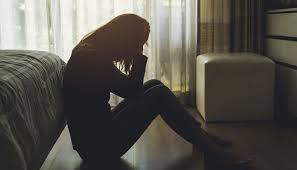Symptoms of anxiety include worrying, intrusive and obsessive thoughts, confusion and difficulty concentrating, restlessness, irritability, frustration and despair. A person with anxiety may feel tense, with uncomfortable physical sensations, such as tremors, sweating, rapid heartbeat (tachycardia), nausea, and difficulty breathing. When the onset of such symptoms is intense and sudden, it is often indicative of a panic attack. Anxiety can also lead to headaches, insomnia, digestive problems, and dizziness.
The anxiety disorder
Anxiety is defined as a state of nervousness, apprehension and insecurity that may or may not be associated with real-life stressors. Everyone experiences a certain level of it periodically, but when these feelings of fear and worry are poorly defined, overwhelming, recurrent and not directly linked to stressful events, anxiety can cause people to suffer from severe psychological and emotional impairment.
Anxiety disorders involve a rather high cost for society and for the people who suffer from them.
They are often associated with a higher risk of suffering from cardiovascular disease and other diseases. People with this disorder also have a doubled risk of having suicidal ideation and suicide attempts compared to people without a psychiatric diagnosis, have a greater difficulty in finding a job and are afflicted with serious interpersonal distress.
All anxiety disorders are associated with substantial reductions in the quality of life.
How does anxiety develop?
Anxiety, like the fight or flight reaction, is a survival mechanism that allows people to protect themselves in order to avoid suffering, but if a person repeatedly and needlessly experiences extreme levels of fear and worry they will tend to feel helpless and unable to cope. relieve their symptoms.
The predisposition towards anxiety has both biological and environmental bases. In other words, anxious behaviors can be both inherited and learned. For example, research has shown that anxious children are probably born to anxious parents; those parents on the other hand may also have taught these anxious tendencies with their own behavior.
Anxiety can also develop as a consequence of an unresolved trauma that leaves a person in a physiological state of high avoidability.
Which therapy works for anxiety?
Thanks to its proven efficacy (NICE Guide), the therapy that is most often recommended for the treatment of anxiety disorders is cognitive and behavioral therapy (CBT). Rather than treating the symptoms alone, as drugs do for example, psychotherapy aims to identify and address the origin of anxiety.
The self-reflective process of therapy helps people understand, reveal and transform anxiety and learn self-help techniques to use in the event that anxiety arises again.
Medicines for anxiety
Anxiety drugs are designed to treat the specific symptoms of anxiety and to allow a person affected by them to improve their daily function and feel better; they cannot, however, change the underlying emotional and psychological causes of anxiety or help the person learn to cope with future events that may in some way provoke an anxious reaction.
The most common drugs to treat anxiety are antidepressants, such as Celexa, Lexapro, Prozac, Zoloft and anxiolytic drugs such as Tavor (Lorazepam), Xanax (Alprazolam), Valium or Ansiolin (Diazepam), En (Delorazepam), Rivotril, Lorans , Lexotan.
Summary
Unwanted side effects are quite common. Every person responds to drugs differently and it is therefore extremely important to monitor changes in mood and behavior in order to choose the right drug.
